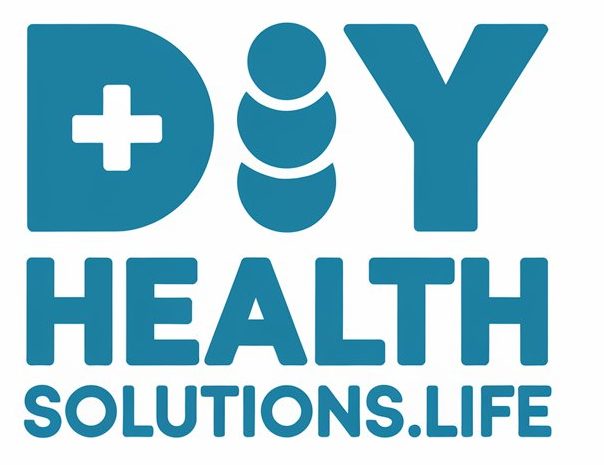Allergy Remedies You Can Try at Home
You can effectively manage allergy symptoms at home using a variety of natural remedies. Try quercetin-rich foods like apples and onions to stabilize histamine release, or sip chamomile tea to reduce nasal congestion. Essential oils such as peppermint can clear your nasal passages, while maintaining indoor humidity between 30%-50% helps minimize allergens. Incorporate immune-boosting foods like berries and omega-3 fatty acids into your diet. Don’t forget to keep your home clean and consider using air purifiers. With so many options at your fingertips, you’re on your way to finding the perfect solution for your allergies. Explore further options to enhance your relief!
Key Takeaways
- Use natural antihistamines like quercetin and vitamin C to help lower histamine levels and alleviate allergy symptoms.
- Brew herbal teas such as chamomile and peppermint to reduce nasal congestion and soothe irritation effectively.
- Incorporate essential oils like peppermint and eucalyptus into your routine for their anti-inflammatory and decongestant properties.
- Maintain a clean home environment with air purifiers and hypoallergenic bedding to minimize allergen exposure.
- Make dietary changes by consuming immune-boosting foods and staying hydrated to support your body’s response to allergies.
Natural Antihistamines
When allergy season hits, you might find yourself reaching for over-the-counter medications to ease your symptoms. However, have you considered natural antihistamines? These natural supplements can help combat seasonal allergies without the drowsiness often associated with traditional medications.
Quercetin, a flavonoid found in apples, onions, and berries, is one of the most effective natural antihistamines. It works by stabilizing mast cells and preventing the release of histamine, which is responsible for allergy symptoms.
Another powerful option is butterbur, an herb that has shown promise in reducing nasal congestion and other allergy symptoms.
Vitamin C is another natural ally in your fight against seasonal allergies. It not only boosts your immune system but also helps lower histamine levels in the body.
Additionally, omega-3 fatty acids, found in fish oil, can reduce inflammation and support overall respiratory health.
Incorporating these natural supplements into your routine may provide relief and lessen your dependence on conventional medications.
Always consult your healthcare provider before adding new supplements, especially if you’re already taking other medications.
With the right approach, you can navigate allergy season more comfortably.
Herbal Teas for Relief
Exploring natural remedies can lead you to herbal teas, which aren’t only soothing but also effective in alleviating allergy symptoms. Herbal infusions like chamomile, peppermint, and ginger can provide relief when seasonal allergies hit.
Chamomile tea is known for its anti-inflammatory properties, helping to reduce nasal congestion and irritation.
Peppermint tea acts as a natural decongestant, opening up airways and making breathing easier. The menthol in peppermint can also soothe your throat, easing discomfort.
Ginger tea, packed with antioxidants, can help combat inflammation and support your immune system, making it a powerful ally during allergy season.
You might enjoy creating your own soothing blends by mixing different herbs. For example, combining chamomile and peppermint can enhance the soothing effects while offering a delightful flavor.
Drinking these herbal teas regularly can help you manage your symptoms more effectively.
When brewing your herbal infusions, steep the herbs in hot water for about 5-10 minutes to extract their beneficial properties.
Essential Oils for Allergies
Essential oils offer a powerful, natural approach to managing allergy symptoms. You can harness the benefits of essential oils like peppermint oil and eucalyptus oil to alleviate discomfort caused by seasonal allergies, dust, and other allergens.
Peppermint oil is known for its anti-inflammatory properties. When you inhale its aroma or apply it topically (diluted with a carrier oil), it can help clear nasal passages and reduce congestion. Additionally, peppermint oil may soothe headaches related to sinus pressure, making it a versatile ally during allergy season.
Eucalyptus oil is another excellent option for relief. Its natural decongestant properties can help open up airways, making it easier for you to breathe. You can diffuse eucalyptus oil in your living space or add a few drops to a warm bath for a relaxing and therapeutic experience.
To maximize effectiveness, consider blending these oils for a synergistic effect. Always perform a patch test before applying any essential oil to your skin, and consult with a healthcare professional if you have concerns or existing health conditions.
With these natural remedies, you can take a proactive step toward finding relief from your allergy symptoms.
Home Environment Adjustments
Making adjustments to your home environment can greatly reduce allergy symptoms and create a healthier living space. One of the most effective changes you can make is to invest in air purifiers. These devices filter out allergens like dust, pollen, and pet dander, improving your indoor air quality. Look for purifiers with HEPA filters, which capture 99.97% of particles as small as 0.3 microns.
Another important aspect is humidity control. Allergens thrive in humid conditions, so maintaining indoor humidity levels between 30% and 50% is necessary. You can use dehumidifiers in damp areas like basements or bathrooms to keep moisture in check. Regularly check for leaks or standing water, as these can contribute to mold growth, another common allergen.
Additionally, consider using hypoallergenic bedding and curtains, which can help minimize dust accumulation.
Frequent cleaning is essential; vacuum carpets and upholstery with a vacuum that has a HEPA filter, and wash bedding weekly in hot water.
Dietary Changes for Allergy Relief
After creating a healthier home environment, you can further support your allergy relief efforts through dietary changes. Your diet plays an essential role in managing allergies, especially if you have food sensitivities. Start by identifying any foods that trigger your symptoms; common culprits include dairy, gluten, and certain nuts. Keeping a food diary can help you pinpoint these sensitivities.
Incorporating immune-boosting foods into your meals can also make a difference. Foods rich in antioxidants, like berries, leafy greens, and citrus fruits, help strengthen your immune system. Omega-3 fatty acids, found in fish like salmon and walnuts, can reduce inflammation, which may alleviate allergy symptoms.
Don’t forget about probiotics! Fermented foods like yogurt, kefir, and sauerkraut can enhance gut health, which is linked to improved immune function. By focusing on whole, unprocessed foods, you’re not only avoiding allergens but also nourishing your body.
Lastly, stay hydrated. Drinking plenty of water can help thin mucus and reduce congestion.
With these dietary changes, you’re taking proactive steps toward relieving your allergies and improving your overall well-being.
Frequently Asked Questions
Can Allergies Develop Suddenly in Adulthood?
Yes, allergies can develop suddenly in adulthood. Adult onset allergies often arise from new allergy triggers in your environment or lifestyle, making it essential for you to recognize symptoms and seek appropriate management strategies.
Are There Specific Foods That Worsen Allergies?
Yes, certain foods can worsen allergies. You might find that common allergens like dairy, gluten, or nuts trigger food sensitivities. Identifying your specific allergy triggers is essential for managing your symptoms effectively.
How Long Do Allergy Symptoms Typically Last?
Allergy symptoms can feel like a storm—intense but temporary. Typically, allergy duration ranges from a few hours to several weeks, depending on exposure. For symptom relief, consider consulting a healthcare professional for tailored advice.
When Should I Seek Medical Attention for Allergies?
You should seek medical attention for allergies when you experience urgent symptoms, like difficulty breathing, swelling, or severe reactions. Allergy severity can escalate quickly, so don’t hesitate to get help if you’re feeling overwhelmed.
Are There Any Long-Term Effects of Untreated Allergies?
Ignoring untreated allergies can lead to long-term impacts like chronic sinus issues, asthma development, and reduced quality of life. You’ll want to address symptoms early to prevent these complications from becoming a part of your future.





